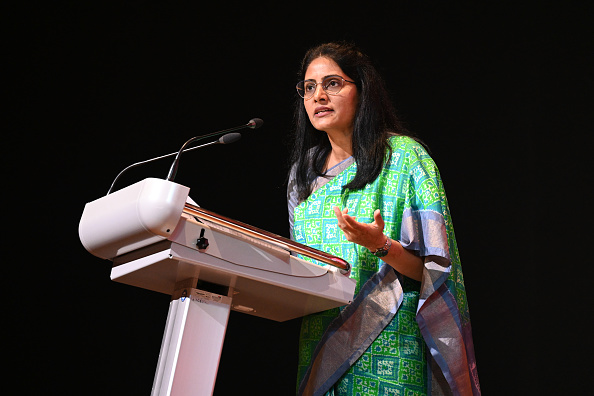Union Minister of State for Health and Family Welfare, Anupriya Patel, called for urgent global cooperation to address the rising threat of Antimicrobial Resistance (AMR) during her address at the United Nations General Assembly (UNGA) High-Level Meeting on AMR on Friday.
In her address, Patel highlighted the grave threat AMR poses to global public health, warning that it jeopardizes decades of progress made in modern medicine. She urged countries to integrate AMR containment strategies into key health initiatives, including pandemic preparedness, health system strengthening, and universal health coverage, emphasizing the need to focus resources on prevention and mitigation rather than just surveillance.
Patel outlined India’s progress in combating AMR since the launch of its National Action Plan (NAP AMR) in April 2017. She emphasized India’s achievements in expanding surveillance networks across both human and animal health sectors, reducing hospital-acquired infections through enhanced infection prevention and control (IPC), and promoting responsible antimicrobial use. “Infection Prevention and Control has been strengthened through comprehensive, nationwide training of healthcare workers,” Patel noted, adding that hygiene and sanitation in healthcare facilities have improved under the Clean India Mission.
The minister also shared details of India’s standardized nationwide surveillance system for healthcare-associated infections (HAI) and the introduction of regulations mandating prescription-based sales of antimicrobials. “To ensure the judicious use of antimicrobials, National Treatment Guidelines are updated regularly,” she said.
Patel also introduced India’s Antimicrobial Stewardship (AMS) Program, designed to reduce unnecessary antibiotic prescriptions and curb the rise of AMR. Tailored for resource-limited settings, this program has been adopted by several hospitals across the country.
She emphasized the importance of inter-sectoral collaboration under India’s updated NAP-AMR 2.0, which includes budgeted action plans and well-defined monitoring frameworks for each sector. The existing One Health framework in India is being used to enhance coordination across human, animal, and environmental sectors to address AMR.




















